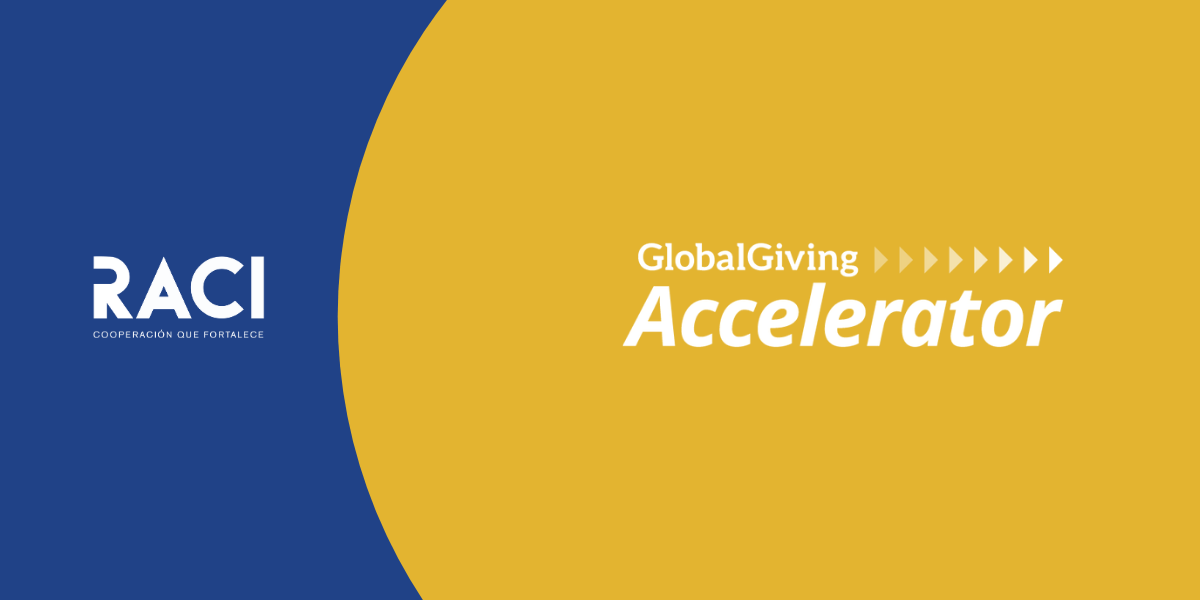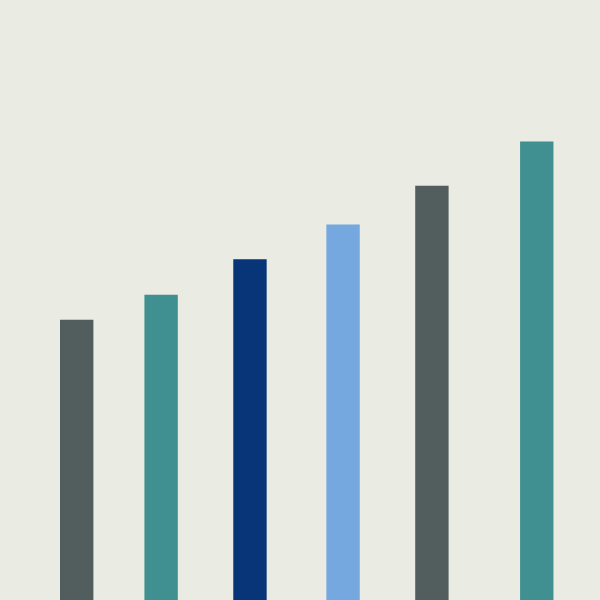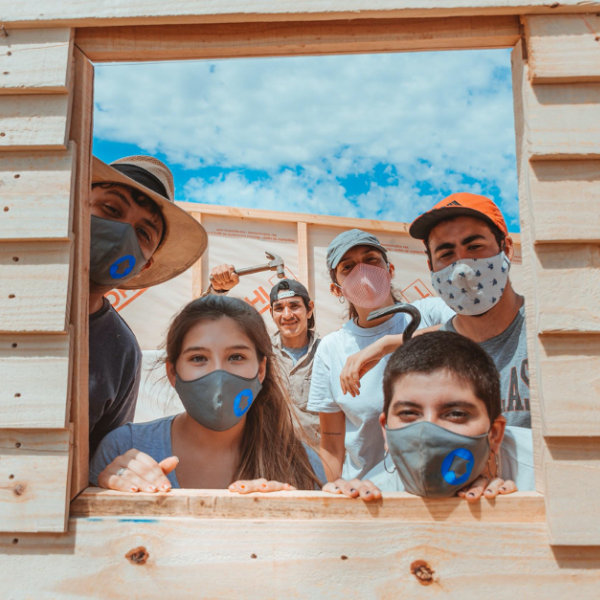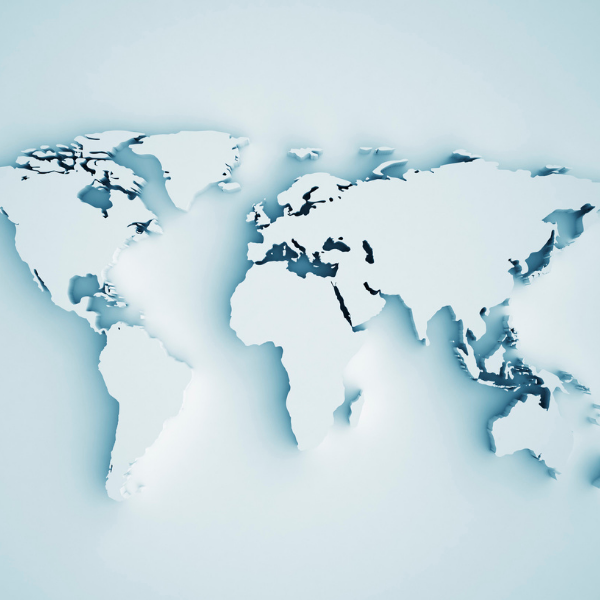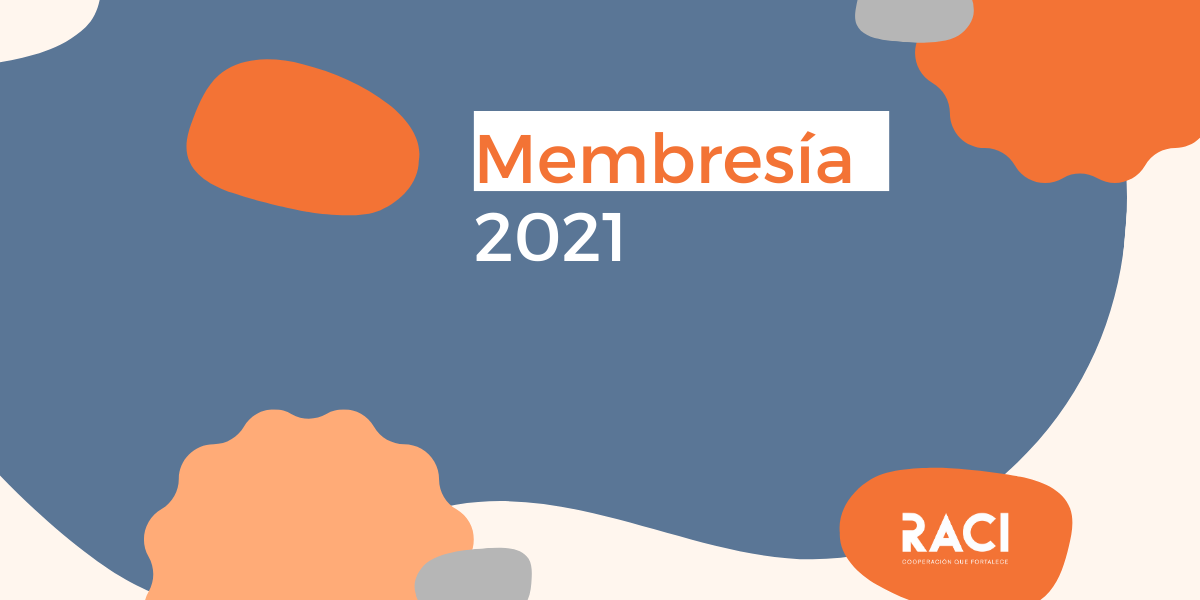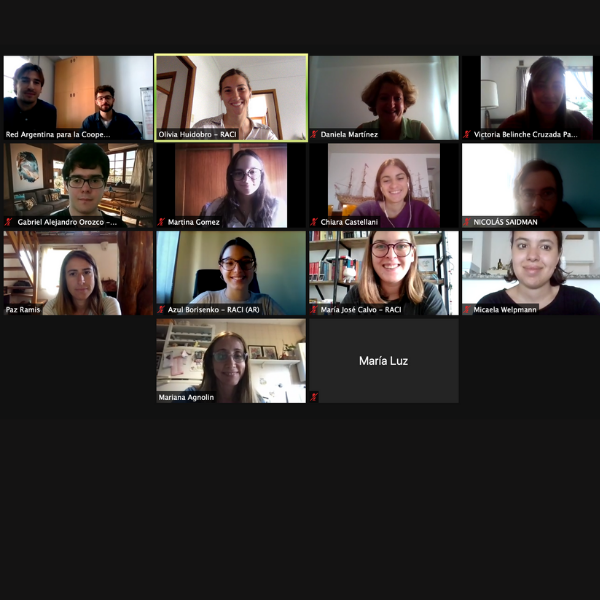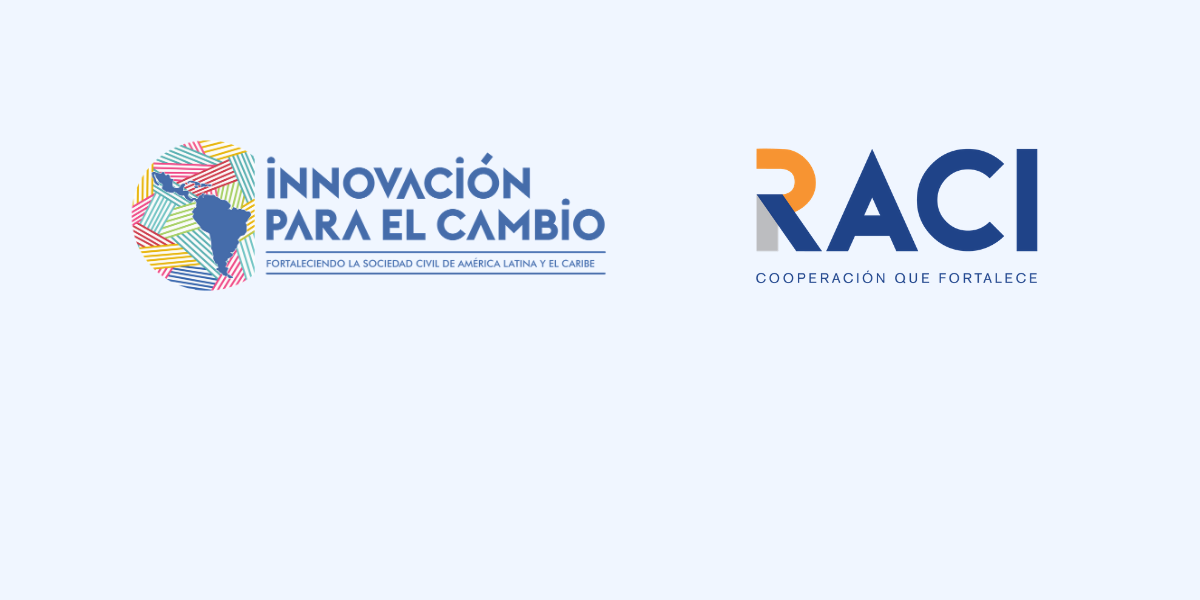TECHO is a Civil Society Organization that aims to end poverty in informal settlements in Latin America and the Caribbean, through joint action between volunteers, male and female neighbors. The implementation of a working model focused on community development, the promotion of awareness and social action, and political advocacy aims to build a just society without poverty.
ACTIVITIES FOR 2021
By 2021, the organization summons young volunteers to join different projects and programs together with residents of popular neighborhoods in the 10 provinces in which it is present: Buenos Aires, Santa Fe, Córdoba, Neuquén, Río Negro, Misiones, Tucumán, Corrientes, Chaco, and Salta.
In this way, TECHO will continue with its emergency housing construction program: initially, a neighborhood survey process will be carried out to find out the housing situation, then the criteria for assigning these homes will be defined together with the community, and finally, volunteers and neighbors will build the new homes for the families.
The Organization will also continue to accompany neighborhood workgroups, which consist of assemblies to build and carry out, together, improvements in access to services and the community habitat, such as the construction of sidewalks, community water tanks, among other initiatives.
In addition, this year they launched two new programs: the legal training cycle and the political training cycle for referents from popular neighborhoods, promoting training spaces in the settlements.
People interested in joining the volunteer service can sign up in http://actividades.techo.org, or contact TECHO through their social networks or by sending an email to voluntariado.argentina@techo.org
Networking
One of TECHO’s pillars is networking to promote comprehensive solutions to overcome the poverty situation in popular neighborhoods. We are convinced that the articulation between different actors of civil society is essential to transform reality. If you are interested in working collaboratively with TECHO in the development of community projects in settlements, contact us.
Your donation builds
From TECHO we can make work in the communities a reality thanks to the support of individual donors and companies. The members of the organization make a monthly contribution for the development of activities, while the companies accompany us through different proposals such as corporate volunteering, social marketing campaigns, and other alliances. Learn more at www.dona.techo.org.ar.
JOIN THE TECHO’S COLLECTION
TECHO is a civil society organization that aims to end poverty in informal settlements in Latin America and the Caribbean, through joint action between volunteers, male and female residents. The implementation of a working model focused on community development, the promotion of awareness and social action, and political advocacy aims to build a just society without poverty.
COLLECTION 2021
For more than 10 years, the organization has carried out the #ColectaTECHO, an annual event that is held to make visible the situation of poverty in which more than 4 million people live in settlements in Argentina.
With this event, the organization aims to raise funds to continue developing the joint work carried out by volunteering with the residents of the popular neighborhoods.
This year, the collection will take place on May 7, 8 and 9 in more than 35 cities in 10 provinces where TECHO is present: Buenos Aires, Santa Fe, Corrientes, Chaco, Misiones, Tucumán, Salta, Córdoba, Neuquén and Rio Negro.
Due to the context of COVID-19, face-to-face and/or virtual activities will be carried out, depending on the health situation of each locality, following strict protocols that allow us to take care of everyone’s health.
People interested in joining the volunteer service or making a donation for the collection can do so by entering colecta.techo.org.ar. In this link, you will find more information about the event and forms of participation.
There are different ways to support TECHO: interested persons can join as partners, making a monthly contribution (which is automatically debited from the debit or credit card), or also make a one-time donation through bank transfer or the Mercado Pago application.
The funds raised allow the organization to continue building emergency housing for the families that need it most, and also to continue developing other projects that contribute to the improvement of the habitat in the settlements of Argentina.
Networking
One of TECHO’s pillars is networking to promote comprehensive solutions to overcome the poverty situation in popular neighborhoods. We are convinced that the articulation between different actors of civil society is essential to transform reality. If you are interested in working collaboratively with TECHO in the development of community projects in settlements, contact us.
Contact information
TECHO Argentina
Address: Sarandí 65, CABA
Phone: 011 5218-0861
Mail: info.argentina@techo.org
Web page: https://www.techo.org/argentina/
Facebook: https://www.facebook.com/TECHOargentina
Instagram: https://www.instagram.com/techo_argentina/
Linkedin: https://www.linkedin.com/company/techo—argentina/
Twitter: https://twitter.com/TECHOarg

